Hafsa's Story: How a Moroccan middle schooler is leading the charge for climate action

Hafsa is an eighth grader at Mohammed V Middle School in Marrakech, Morocco. Unlike most students her age, when she is not studying and doing her homework, Hafsa is working to save the planet.
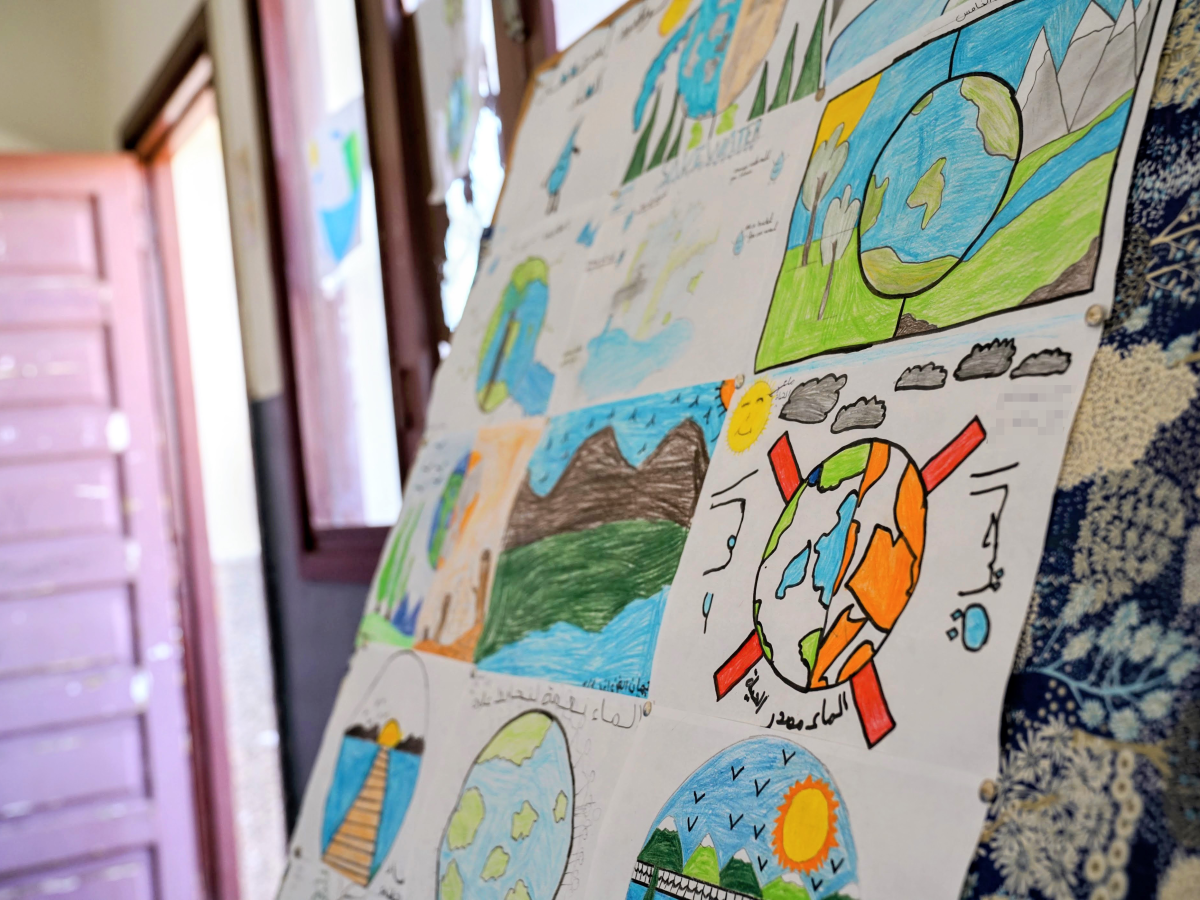
Photo credit: Katie Bercegeay/USAID.
In April 2024, she became a member of her school’s environmental club supported by USAID’s Bridge to Middle School Program (Bridge) and Morocco’s Ministry of Education. During club meetings, Hafsa and 480 of her peers learn about various climate issues and how they can be agents of change within their community.
Between April and June 2024, Hafsa participated in a Bridge-supported campaign to raise awareness about water scarcity, a particularly pressing issue for Morocco. Hafsa and her classmates learned that changes to the climate—like increased heat and drought—put Morocco at extreme risk of water shortages, which can impact people’s livelihoods, health, and wellbeing.
When I learned about the water crisis, I realized how much we can do to make a difference,” Hafsa explained. “One of my peers gave a presentation that deeply moved me. He spoke about his village, where people walk miles to fetch water, while in the cities, people just turn on a faucet and often waste it.
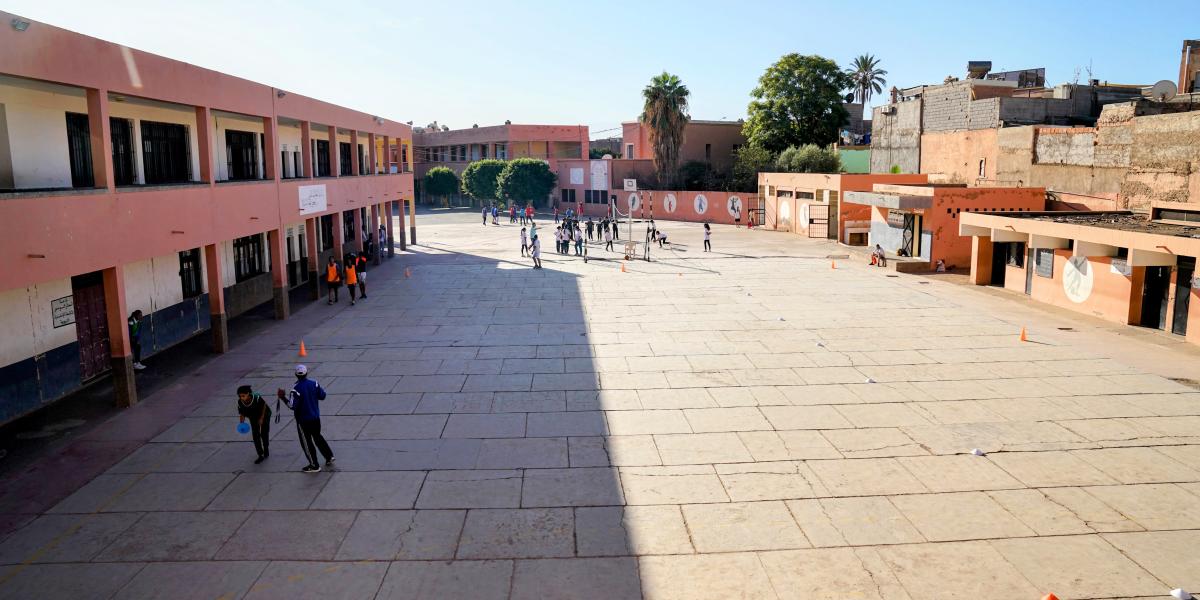
Photo credit: Katie Bercegeay/USAID.
In addition to water conservation techniques and sustainable practices, Hafsa learned how to advocate and inspire others in her community to save water. She participated in debates, conducted research on local water issues, and raised awareness among her fellow students and teachers.
With her passion for the planet propelling her forward, she played a crucial role in organizing awareness campaigns, crafting posters and flyers that promote water conservation and encourage eco-friendly behaviors. Her leadership culminated in a powerful speech delivered at a school assembly where she advocated for the adoption of water-saving practices, leaving a lasting impression on all who heard her.
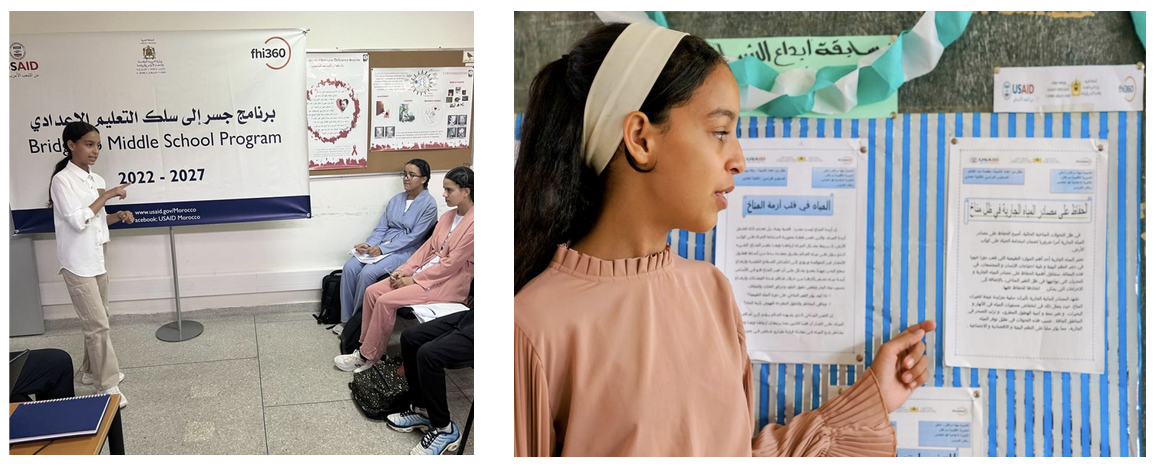
Photo credit: Samah Dahou/FHI 360 (left). Katie Bercegeay/USAID (right).
Being part of this campaign has given me the courage to speak out and take action—not just in school, but at home and in my community. Now, I’m inspired to pursue a career in environmental science to help our planet and raise awareness about the dangers it faces.
Throughout the campaign, Hafsa's efforts were supported by Bridge’s capacity-strengthening initiatives. Through a local partner, the Morocco Association of Teachers of Life Sciences and Earth (AESVT), the program offered continuous guidance to the environmental club’s facilitators, including during online meetings to share best practices and on-site visits to monitor progress. This support ensured that the campaign’s activities were both impactful and sustainable, equipping students like Hafsa to take ownership of their environmental future.
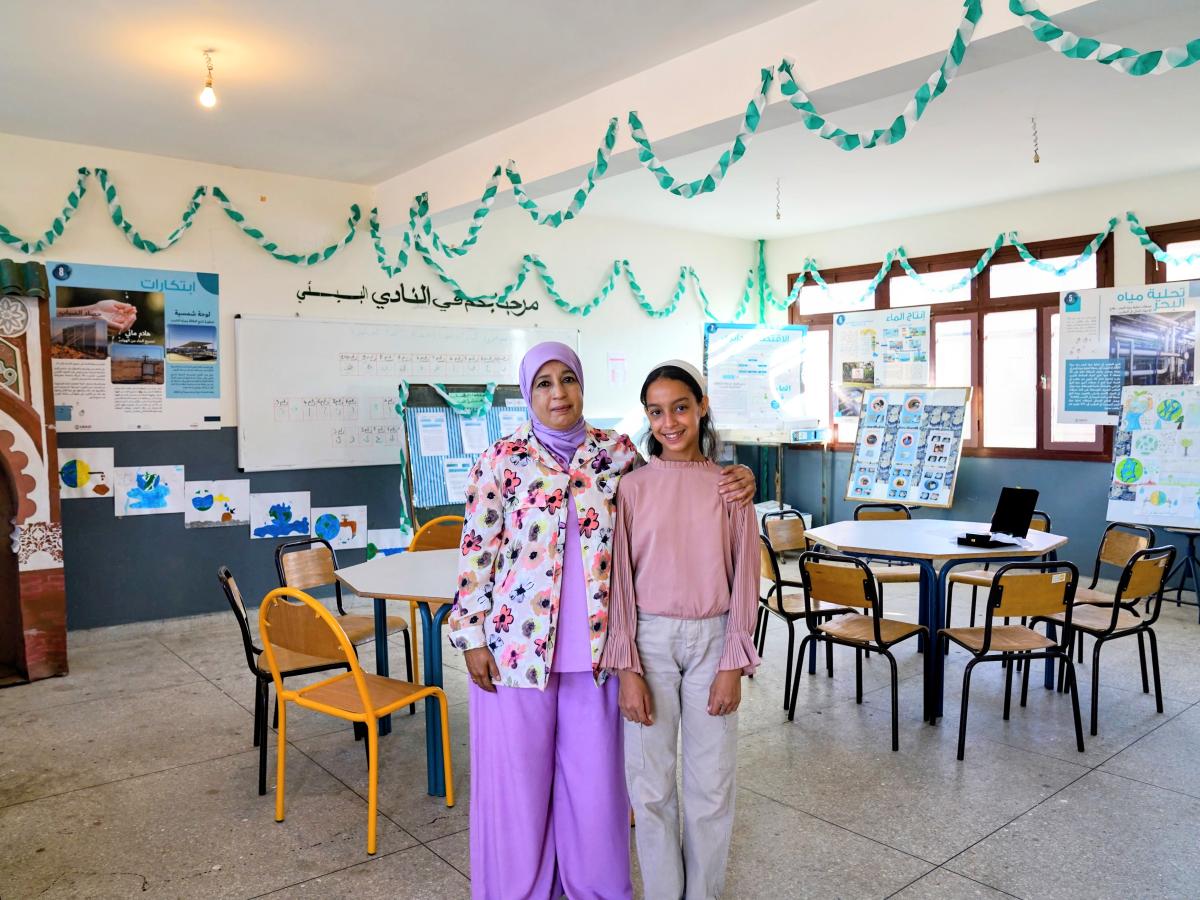
Photo credit: Katie Bercegeay/USAID.
"The Bridge 'Campaign for Change and Alleviation of Water Scarcity' brought together our entire school community with its inspiring ideas. Students eagerly participated, creating expressive drawings, writings, videos, and presentations, all centered on water conservation,” remarked Habiba Beljebbar, Hafsa’s science teacher and environmental club coordinator. “The joy and enthusiasm throughout the campaign were contagious, and our learners are more eager than ever to engage in future activities."
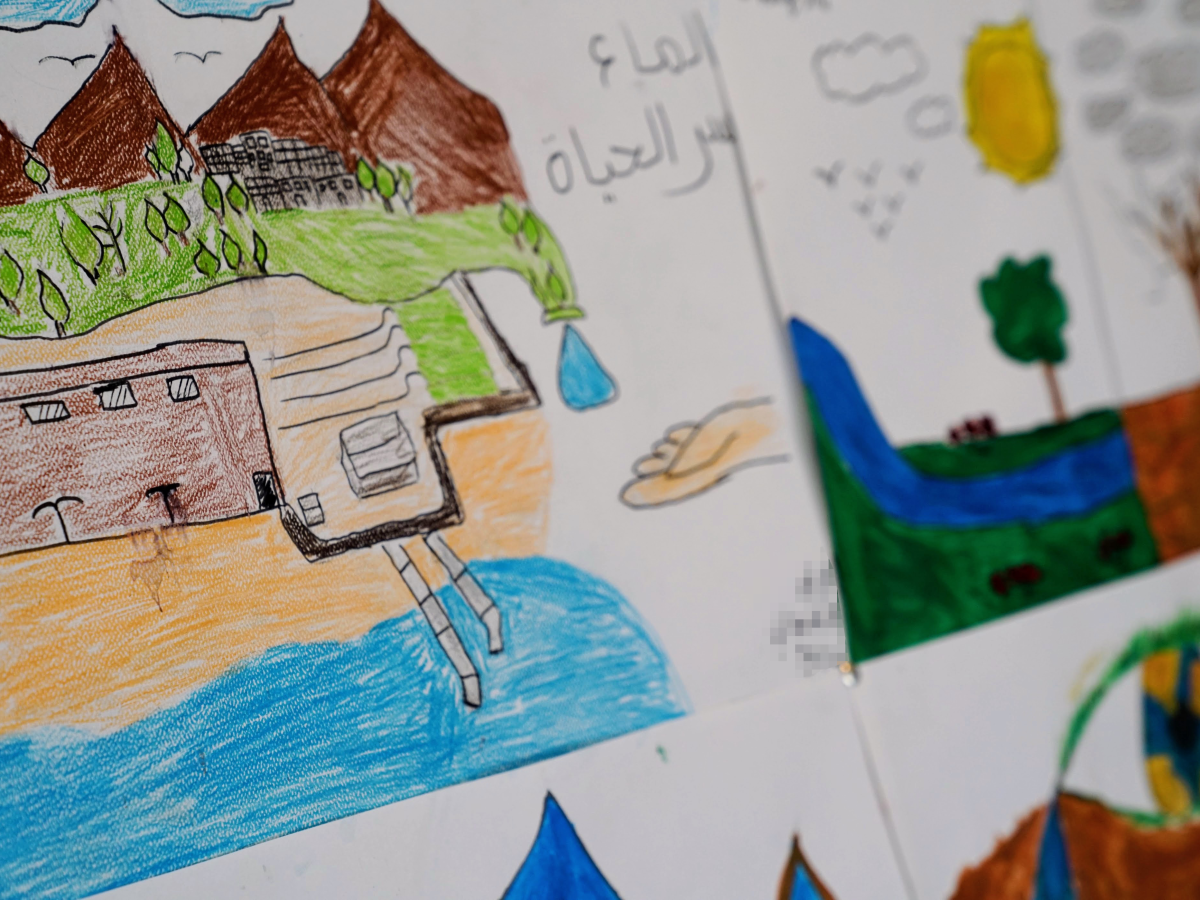
Photo credit: Katie Bercegeay/USAID.
Recognizing that education and youth engagement are critical to overcoming climate-related challenges, Bridge and the Ministry of National Education, Preschool and Sports worked with five pilot schools in the Marrakech-Safi region to organize awareness campaigns and support environmental clubs reaching over 2,000 middle school students. Hafsa's story is one example of how young people can address climate challenges such as water scarcity. Her journey from a concerned student to a leader in her community underscores the power of young voices in driving change. Hafsa and her peers are not just learning about climate change—they are actively shaping a sustainable future for Morocco.
This story was originally published in celebration of the International Day of the Girl 2024 on USAID.gov.
About the Author(s)
Mounya El Asri
Communications Specialist FHI 360
Bridge to Middle School Morocco